Robots within the hospitality industry are becoming more commonplace, with uses ranging from artificially intelligent chatbots designed to assist with the customer service process to robot assistants deployed to improve guests’ experience in a hotel. In this article, you will find more information about the uses of robots within the hospitality industry in 2026, complete with 16 specific examples from around the world.
Table of Contents:
- What Are Robots?
- Robots and Artificial Intelligence
- Robots in the Hospitality Industry
- Examples of the Use of Robots within the Hospitality Industry
- 1. A Tour of the World’s First Robot-Staffed Hotel
- 2. Meet Connie, the Hilton Robot Concierge
- 3. A Robot Suitcase Called Travelmate
- 4. A Robot Assistant for Airports and Hotels
- 5. A Robot for Travel Agencies
- 6. A Chatbot to Make Your Flight or Hotel Booking
- 7. Security Robots for Airports
- 8. Hotel Chatbots Powered By AI
- 9. Reception or Front Desk Robots
- 10. Hotel Housekeeping Robots
- 11. Room Service & Delivery Robots
- 12. Restaurant Waiting Robots
- 13. Hotel Bartending Robots
- 14. Luggage Handling Robots
- 15. Robot-Staffed Hotels
- 16. More Examples of Robots in the Hospitality Industry
- Advantages and Disadvantages of Robots vs. Humans
What Are Robots?
When discussing robots and their uses, it is important first to establish what they are. In simple terms, a robot is a machine that has been built to carry out complex actions or tasks automatically. Some robots are designed to resemble humans, called androids, but many robots do not take such a form.
Modern robots can be autonomous or semi-autonomous and may use artificial intelligence (AI) and speech recognition technology. That said, most robots are programmed to perform specific tasks with great precision, an example being the industrial robots seen in factories or production lines.
Robots and Artificial Intelligence
According to the Artificial Intelligence (AI) Market Report by Precedence Research, the global artificial intelligence market size is projected to reach $2,575.16 billion by 2032. The use of artificial intelligence within the field of robotics is one of the most exciting and promising applications for individuals and businesses operating within hospitality management. Nevertheless, this is another complex area where a clearer understanding is necessary.
Essentially, artificial intelligence refers to the performance of seemingly intelligent tasks that mimic human cognitive functions. Although there is no precise definition of what constitutes artificial intelligence, problem-solving, reasoning, understanding human speech, and autonomous navigation are typically considered AI examples.
Therefore, references to artificially intelligent robots will usually describe robots designed to achieve some of these ‘intelligent’ tasks or functions.
Robots Within Hospitality Industry
Part of the reason why robots have emerged as a popular technology trend within the hospitality industry is because ideas of automation and self-service are playing an increasingly vital role in the customer experience. The use of robots can lead to improvements in terms of speed, cost-effectiveness, and even accuracy. According to the Hospitality Robots Market Analysis Reports by TechNavio, the hospitality robots market size worldwide is projected to grow at a CAGR of 12.13% between 2022 and 2027.
For example, chatbots allow a hotel or travel company to provide 24/7 support through online chat or instant messaging services, even when staff would be unavailable, delivering extremely swift response times. Meanwhile, a robot used during check-in can speed up the entire process, reducing congestion.
Table: Examples of Robot & Artificial Intelligence Applications in Hospitality
Examples of the Use of Robots Within Hospitality Industry
Below is a list of 16 current uses of robots within the hospitality industry.
1. A Tour of the World’s First Robot-Staffed Hotel
Situated in Nagasaki, Japan, Henn-na Hotel became the first hotel in the world to be entirely staffed by robots. The hotel’s robots are deployed to provide information, front desk services, storage services, and check-in and check-out services, with technology including voice and facial recognition.
2. Meet Connie, the Hilton Robot Concierge
Connie is a robot concierge used by Hilton. The robot uses an artificial intelligence platform developed by IBM and can interact with guests and respond to their questions, thanks to its speech recognition capabilities. The system also learns and adapts with each interaction, improving the answers it provides.
3. A Robot Suitcase Called Travelmate
Away from the hotel industry, Travelmate is an example of robotics used for luggage purposes. Essentially, it is an autonomous suitcase that can follow you independently. It uses anti-collision technology, has 360-degree turning capabilities, and eliminates the need to carry, pull, or push a suitcase around.
4. A Robot Assistant for Airports and Hotels
Airports and hotels are increasingly using robotic assistants, transforming the entire hospitality industry. These assistants can perform various tasks, including room service and information provision. A key advantage is the ability of robots to offer support for various languages. At Incheon Airport in South Korea, LG’s CLOi GuideBot helps passengers find gates and facilities, answering questions in multiple languages. In Munich Airport’s Terminal 2, the JEEVES snack robot roams the gate area selling drinks and snacks via a touchscreen and cashless payments. In hotels, Relay delivery robots by Relay Robotics bring towels, toiletries and snacks directly to guest rooms, even calling elevators.
5. A Robot for Travel Agencies
Some travel agents are also looking into the use of robots, especially as a means of pre-qualifying customers. For example, Amadeus has experimented with a robot called 1A-TA, powered by artificial intelligence. Rather than forcing customers to wait during busy periods, the robot can immediately get to work, finding out about their needs and preferences and passing the information on when they speak to a human travel agent. In the UK, TUI is piloting a ChatGPT-powered assistant in its app that answers destination questions and suggests excursions. TUI Austria and TUI Cruises use chatbots like “Thies” for tens of thousands of customer chats each month.
6. A Chatbot to Make Your Flight or Hotel Booking
To date, chatbots have been one of the most commonly used robots within the hospitality sector, and these can be used to deliver basic customer service or for more complex tasks, like hotel or flight bookings. A great example is the SnatchBot Booking Travel Template, which intelligently guides customers through booking. Similarly, KLM’s AI assistant BlueBot lets customers search and book tickets directly in Facebook Messenger, guiding them through destinations and dates in a conversational way.
7. Security Robots for Airports
Airport security is one of the most important areas where new technology and robots are deployed. One particularly strong example of this is the Knightscope robots that are increasingly used to autonomously detect concealed weapons, helping keep passengers safe during their flights. For example, San Antonio International Airport is deploying a Knightscope K5 autonomous security robot to patrol secure indoor areas and respond to door alarms, streaming 360-degree video to the command center. Incheon International Airport uses SeRo, a security and quarantine robot from Wonik Robotics that checks passenger temperature and mask use and sends alerts when readings are abnormal. China’s Shenzhen Bao’an International Airport trialled the Anbot security robot, which patrols, detects hazards and can help deter suspects.
8. Hotel Chatbots Powered By AI
AI-powered hotel chatbots are tools for communicating with existing or potential customers via an online chat function. The chatbot can interpret what users write and respond intelligently. Hotel chatbots are important because they offer 24/7 support and resolve basic customer service issues with no human involvement. This helps ease the workload of customer service teams.
Of all the robots hospitality industry businesses use, chatbots are among the most affordable and deliver a great return on investment. They can reduce average response times, boost satisfaction and collect valuable data. Data gathered by chatbots can be passed on to a human customer service agent or retained for future use.
For example, Edwardian Hotels London uses “Edward”, an SMS-based virtual host at Radisson Blu Edwardian properties; guests text to request room service, directions or help with problems.
Video: Hotel Chatbot | AI Chatbot for Hotel Management | Demo | ORAI ROBOTICS
9. Reception or Front Desk Robots
Reception robots in the hospitality industry use robotics, AI and machine learning technology to handle front desk tasks. This includes checking guests in, answering questions and authenticating IDs. The use of robotics for the front desk can play a valuable role in reducing wait times. As a result, guests may gain a better first impression of your hotel, because they avoid delays and see you embracing the latest technology.
Japan’s Henn-na Hotel is the most prominent example of a hotel using reception robots. The robots can generally perform the essential actions associated with reception, like processing payments and providing room keys. One of the big potential benefits of a front desk robot is their ability to communicate in multiple languages.
Video: Dinosaur Robot Receptionist at Henn na Hotel in Kanazawa (Japan 🇯🇵 Vlog)
10. Hotel Housekeeping Robots
Hotel housekeeping robots are designed to automatically carry out cleaning tasks. This can include vacuum cleaning, changing bed sheets and other tasks associated with getting rooms ready for new guests. For many hotels, housekeeping is one of the most time-consuming tasks and it can be challenging to coordinate. Through automation, this stress can be avoided or greatly reduced.
Housekeeping robots can collaborate with each other to create a team to work alongside humans. The most advanced housekeeping robots hospitality industry businesses invest in offer UV light cleaning for maximum hygiene and air purification, to remove contaminants from the air. For example, SoftBank Robotics’ autonomous vacuum Whiz
is used in hotels such as Hilton Garden Inn Gilroy, where management reports guest cleanliness scores rising after deploying the robot for corridors and public areas.
Video: SOMATIC’s New Version of Its Bathroom Cleaning Robot
11. Room Service & Delivery Robots
Room service and delivery robots are able to navigate a hotel and take food, drinks and other items to guest rooms. They will use navigation technology to travel, avoid collisions, use elevators and find the right door. Delivery robots have the potential to become some of the most useful robots in the hospitality industry, offering constant availability. This can enable guests to place orders on a 24/7 basis.
By increasing the hours room service is available, hotels have the potential to boost their earnings. There is also a novelty component, which can appeal to many guests and encourage them to order food and drinks. Some robots are also able to communicate with guests as they deliver their items, enhancing the experience.
For example, Relay delivery robots from Relay Robotics ride elevators to bring snacks, toiletries and takeout directly to guest rooms, reducing late-night workload for staff. Another example is Keenon’s BUTLERBOT W3 used in hotels like M Social Auckland to deliver bottled water and amenities between floors.
12. Restaurant Waiting Robots
A restaurant waiting robot is a machine capable of taking restaurant orders. These robots can take many forms, from AI-powered self-service kiosks, to humanoid robots capable of taking plates to and from tables. Like other robots in the hospitality industry, waiting robots reduce staff workloads. However, they can also help to deliver a more consistent service standard and can avoid social faux pas when communicating.
The most advanced waiting robots will use sensors and navigation technology to avoid collisions with tables, chairs, guests and other staff. They may include multiple trays or shelves to carry plates, bowls, glasses and bottles. Ultimately, these robots can speed up service, potentially increasing guest turnover and revenue.
For example, Bear Robotics’ Servi is a tray-carrying robot waiter used in many US and Asian restaurants to run dishes and return dirty plates, easing staffing shortages
Video: Sushi Island – Bella Bot – Robot Waitress
13. Hotel Bartending Robots
Hotel bartending robots are able to automatically mix and serve drinks. They will usually also be able to take orders, either through conversation, text input or by receiving orders through an app. Bartending is one of the fastest-growing areas for robots in hospitality industry settings. These robots can reduce average service times and make work easier for human bar staff.
In many cases, the robots can be programmed to learn thousands of cocktail recipes, which they can then create with excellent precision. Not only does this result in great choice and consistency, it also avoids waste. When deployed to great effect, a bartending robot can optimize efficiency and increase profit margins. For example, Makr Shakr’s robotic bartenders power Royal Caribbean’s famous Bionic Bar, where robot arms shake and stir cocktails ordered via tablets on ships like Harmony of the Seas and Quantum of the Seas.
14. Luggage Handling Robots
Luggage-handling robots are able to automatically move guest bags and suitcases from the lobby to guest rooms. They use sensors and route planning technology to automatically navigate halls and elevators. Baggage handling is a physically demanding job, which carries an injury risk. Automating this process not only reduces workloads, but can prevent injuries and reduce the risk of bags or suitcases being dropped.
Some of the top brands embracing robots in the hospitality industry have implemented robot luggage handlers and they can often carry multiple bags at once and complete multiple journeys in sequence. These luggage-handling robots can also facilitate unusual check-in and check-out times.
Video: NYC Yotel “Yobot” Luggage Handling Robot
15. Robot-Staffed Hotels
Robot-staffed hotels are hotels where the day-to-day operations are predominantly or exclusively carried out by robots. They will deploy a combination of the aforementioned robots hospitality industry businesses use. Hotels staffed by robots are seen as innovative and forward-thinking, and also have a novelty factor. At the same time, the use of robots can greatly reduce labor costs and help to maximize profit.
In a robot-staffed hotel, you can expect to see robot housekeepers, robot vacuum cleaners, robot front desk staff and room service robots. An app may allow guests to set room preferences, which are automatically maintained. Investment in robots and AI also lends itself to the use of biometrics technology to verify IDs for check-ins.
16. More Examples of Robots within Hospitality Industry
There are several additional uses for robots, especially within the hotel industry. For instance, as the following video will show, there are examples of hotel robot butlers and robot luggage porters, which use various technologies, including collision detection, Wi-Fi, and AI, to navigate hotels and provide services.
Advantages and Disadvantages of Robots vs. Humans
The subject of robotics and the use of robots to perform human tasks is a matter of debate, and there are advantages and disadvantages. In terms of positives, robots do not get tired or bored, can work 24 hours a day, seven days a week, and do not require a salary. They can also process many tasks faster than humans.
In certain situations, robots can perform more accurately and consistently than humans can, and ‘human error’ is eliminated. Moreover, robots can perform in dangerous or hostile environments and can be programmed to perform actions that humans would be unwilling or unable to do.
With that said, there are also disadvantages. Increased automation could lead to an employment crisis due to fewer jobs, while the initial investment and maintenance costs associated with robots can be high. They can also not act outside their programmed parameters, meaning they cannot adapt to unanticipated situations.
Robots Hospitality Industry FAQs
Robots and artificial intelligence are emerging as valuable solutions for those operating in the hospitality industry, and their uses are numerous. However, while robots can improve automation and perform tasks without tiring, it is also important to acknowledge limitations, including an inability to adapt quickly to circumstances.
More Digital Trends
With digital technology continuously evolving, it should come as little surprise that its applications in the travel and hospitality industry also evolve. In the following articles, we piled up the most innovative digital trends in the hospitality industry.
- How to use Artificial Intelligence in the Hospitality Industry
- How Augmented Reality is Transforming the Hospitality Industry
- How Virtual Reality (VR) Can Enrich the Hospitality Industry
- Blockchain Technology and Its Uses in the Hospitality Industry
- How the Internet of Things (IoT) can Benefit the Hospitality Industry
- How Can Voice Control Benefit the Hospitality Industry?
- Use Cases of Facial Recognition in The Hospitality Industry
- Smart Hotel; What Are the Benefits for Hotel Owners and Guests?
- Ways to Transform a Hotel Room Into a Smart Room
More Tips to Grow Your Business
Revfine.com is the leading knowledge platform for the hospitality and travel industry. Professionals use our insights, strategies, and actionable tips to get inspired, optimize revenue, innovate processes, and improve customer experience.Explore expert advice on management, marketing, revenue management, operations, software, and technology in our dedicated Hotel, Hospitality, and Travel & Tourism categories.
This article is written by:
Hi, I am Martijn Barten, founder of Revfine.com. With 20 years of experience in the hospitality industry, I specialize in optimizing revenue by combining revenue management with marketing strategies. I have successfully developed, implemented, and managed revenue management and marketing strategies for individual properties and multi-property portfolios.

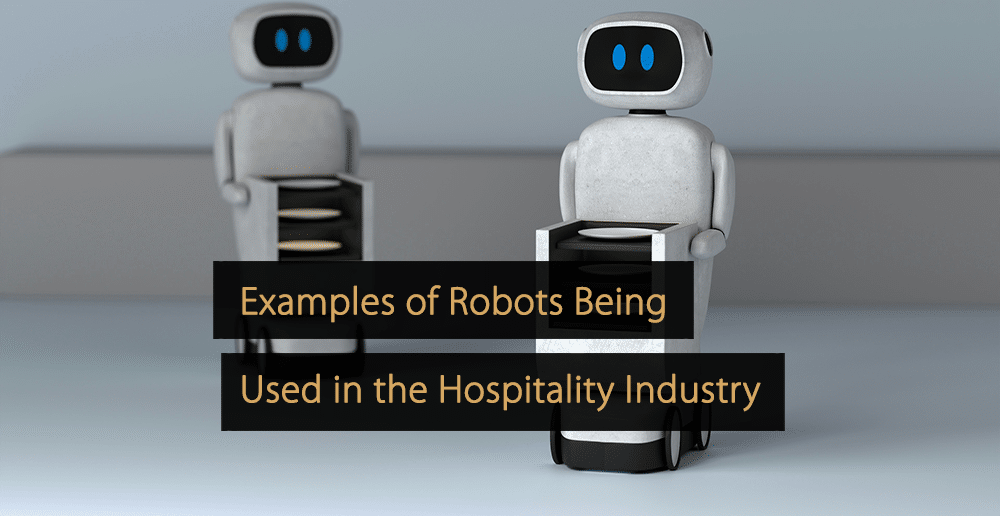
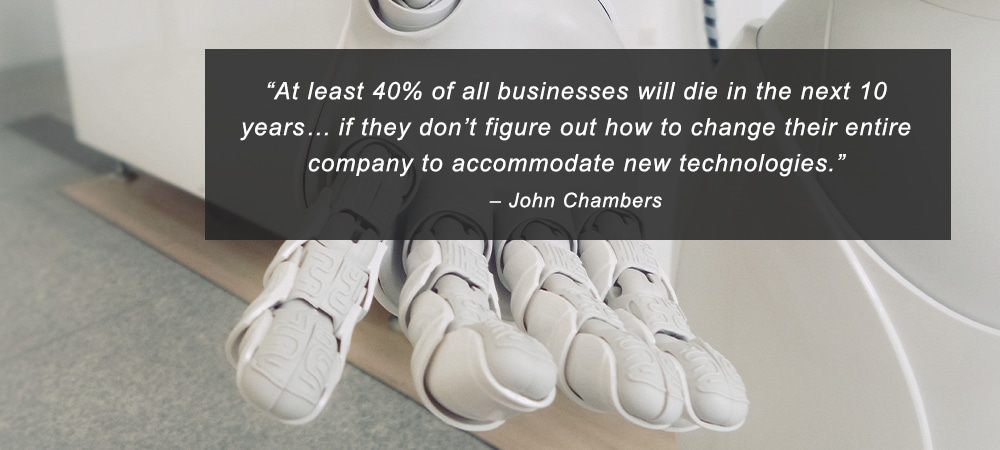

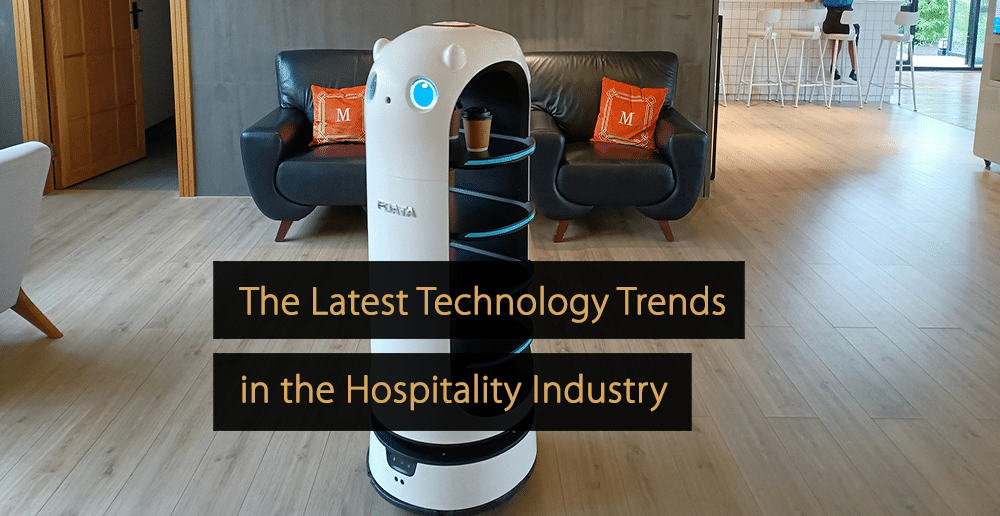
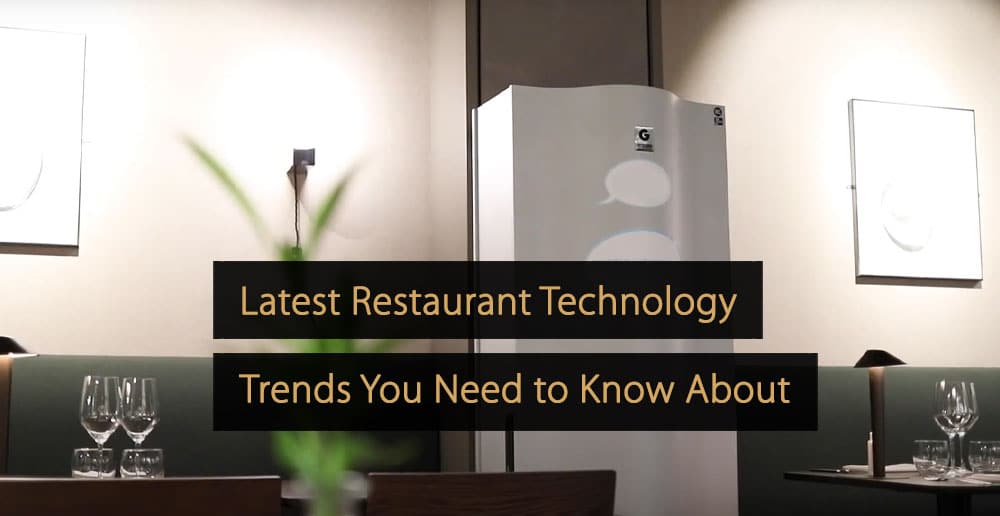
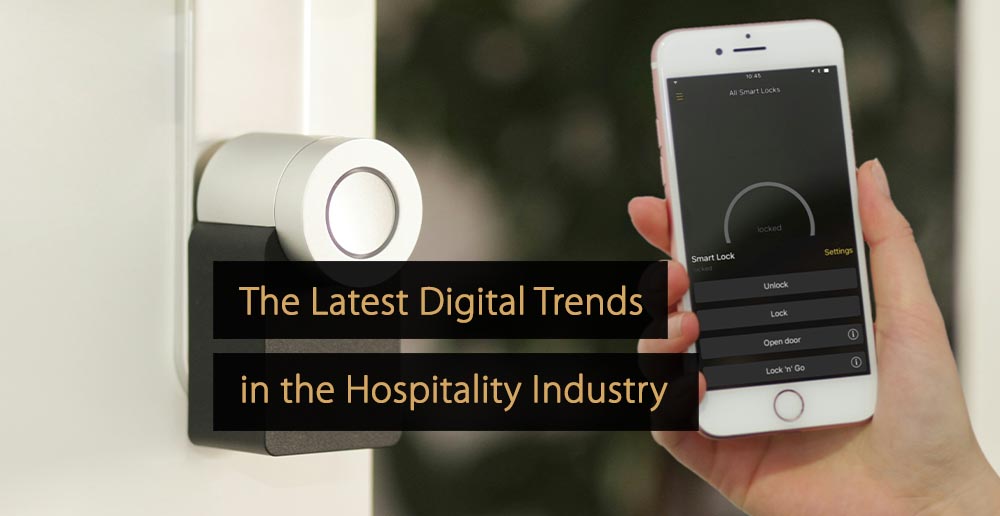
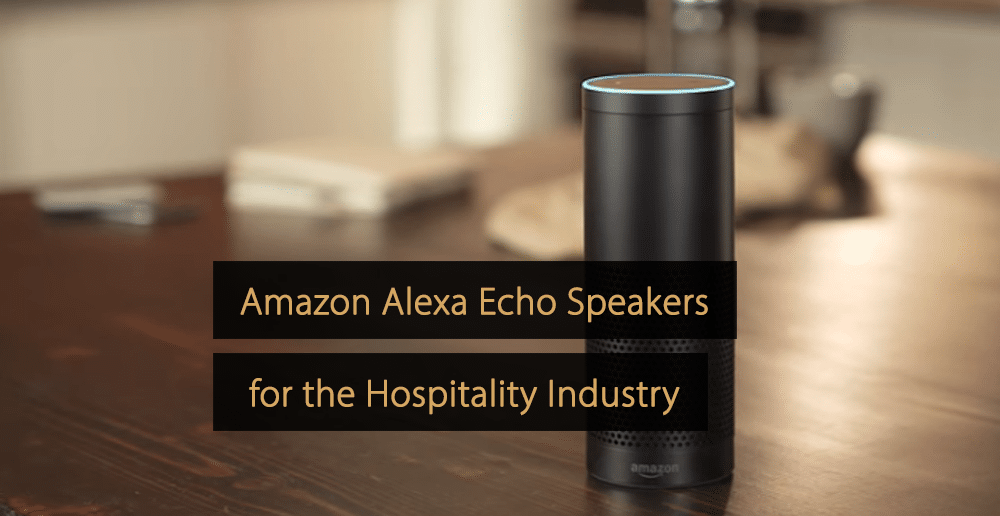

This is a fantastic hospitality website; I Love this article about robots.
It’s amazing the possibilities of robots in hospitality.
Thank you for sharing this insightful article on robots in the hospitality industry. As someone who has worked in the “Robot industry” industry for several years, I found your perspective informative.
Science and automation have exceeded every possible progress that helps in every field. great article.
I would also like to see a luggage robot in hotels! I always pack far too much and then have to carry it around.